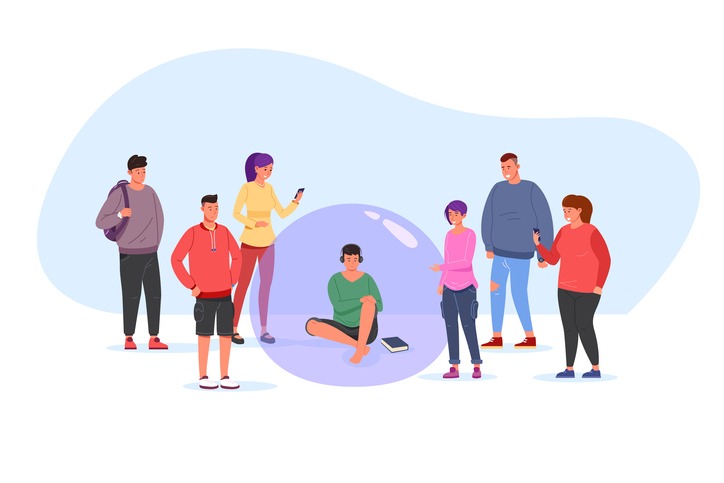
Simon Hepburn, founder of Marketing Advice for Schools, explores how schools can engage better with those who are introverted
Read the full article below or on page 20 in our March magazine
One of the first things you’re usually told in any form of sales job is that, ‘You are not your customer’ – a useful reminder that you can’t just assume the people you’re talking to will have the same interests, and behave in the same way, as you! This is clearly also the case in schools, with parents and other members of your community often having very different motivations and attitudes to staff.
I’ve always assumed that teachers and other school staff are good at adapting to these differences, but when I read the book Quiet: The Power of Introverts in a World That Can’t Stop Talking it made me wonder whether their usual empathy also extended to introverts. The book’s author, Susan Cain, is a self-confessed introvert who has worked in business and finance and has had to cope with a world that often best serves those who talk the most. One thought-provoking quote from her book is, ‘If we assume that quiet and loud people have roughly the same number of good (and bad) ideas, then we should worry if the louder and more forceful people always carry the day.’
Does this apply to schools? I think, in many cases, it can. How many job applications for school staff ask for ‘dynamic’ and ‘energetic’ rather than ‘dedicated’ and ‘focused’ people and, perhaps, put introverts off applying? How many senior leaders are praised in the press and by government ministers for their ‘huge personalities’ rather than their ability to listen, innovate and bring people together? And – perhaps controversially – how many students thrived during COVID lockdown when they were able to work quietly and efficiently, at their own pace, rather than competing with their peers for attention in a busy classroom?
What are introverts and how many are there?
The concept of introversion vs extroversion was developed by psychologist Carl Jung in the 1920s. His idea was that introverts draw energy from being alone, while extroverts draw it from other people and their surroundings. Introverts will tend to be more comfortable working alone, take time to make decisions, prefer writing to talking and will feel tired after time with large number of other people. It doesn’t mean they will be shy or socially anxious – many teachers, and even successful salespeople, are introverts.
Psychologists have estimated that around 25-to-40% of the population are introverts, although there is some debate about whether many people are actually ‘ambiverts’ who can demonstrate both extrovert and introvert behaviours.
Six ideas to help schools engage introverts…
- Learn about introverts and the way they like to work – for example, introverts will prefer to reflect on a presentation and give their ideas later rather than asking or answering questions immediately so, if you don’t offer this opportunity, you may be missing out on important feedback – as Professor Stephen Hawking once said, “Quiet people have the loudest minds.”
- Think about how you ‘sell’ your school through your website, prospectus and prospective parent or student visits. Do you focus on high energy group events and showcase extrovert individuals, or do you take time to look at project work and thoughtful writing – and do you encourage and give people time to reflect and ask questions after school tours?
- Understand how people feel about how you communicate. Self-confessed introvert Duncan Knox created the School Window app (https://www.schoolwindow.app/) after he realised that many parents don’t like (or use) the plethora of different social media and would prefer a simple, one-stop, place for news and information from a school. If you survey your parents you might find they prefer, and will make more use of, this type of approach.
- Change your recruitment processes – especially at a time when there is a real shortage of teachers and support staff, it’s important not to alienate potential applicants by making it seem that only extroverts are wanted. As well as making tha language of your job adverts less extrovert, be careful about creating a recruitment day that only focuses on extrovert activities and offers little time for introverts to recover from tasks. For example, you might arrange lunch with a large number of staff followed by an observed lesson and panel interview, but this might not be ideal for an introvert if you don’t build in a break or a quiet activity.
- Think about how you celebrate student and staff success – do your ‘student of the month’ or ‘staff member of the month’ awards look only for extrovert qualities and reward self-promotion, or are they open to hard-working, quiet introverts who do work that isn’t shared widely?
- Check what activities you offer. For example, do you offer the chance for students to take up project-based activities outside school, such as the CREST Awards (https://www.crestawards.org/) in science alongside the more usual (and extrovert) sports, drama and acting opportunities?



Be the first to comment